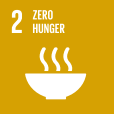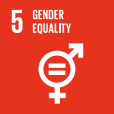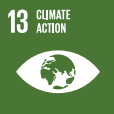How does the mobile industry affect sustainable development goals set by the UN?
Mobile technologies play a significant role in achieving the objectives of the SDGs. The widespread availability and relatively low cost of implementing mobile solutions enable them to become a platform for improving social and economic development processes. The mobile industry is already helping 4.8 billion people (including 3.6 billion people in developing countries) around the world communicate with each other, providing access to tools and applications that can respond to a wide range of socio-economic challenges, as well as open access to new technologies. and innovations conducive to building more efficient and environmentally sustainable societies.
The results of the report of the association of mobile operators GSMA on the state of the mobile communication industry in 2016, which gives an assessment of the impact of the mobile industry on the SDG program, suggests that today, to one degree or another, it contributes to the achievement of all 17 goals.
From a geographical point of view, the influence of the mobile industry is much more pronounced in developed economies. In such countries, there is a long-term practice of investing in network infrastructure and expanding coverage, which has led to a deeper level of penetration of voice services, data services and solutions from the Internet of Things. In developing countries, the progress of the mobile industry in achieving the SDGs is mainly associated with an increase in coverage and increased access to information. In such economies, specific services are common, such as mobile monetary services and agricultural platforms that contribute to increased productivity and the eradication of poverty.
')
Below is information about some of the GSMA-supported initiatives aimed at accelerating the achievement of individual SDGs.
"The dissemination of information and communication technologies, as well as the creation of a global information network, has great potential to accelerate the progress of mankind, eliminate the difference in the level of information and the development of intellectual societies."
Transforming our world: a sustainable development program 2030, the UN
Some selected GSMA initiatives to support the SDGs
Availability of financial services
Put an end to poverty everywhere and in all its forms
 Mobile money services, the number of registered users of which has already exceeded 400 million people, simplify access to financial services, many of which contribute to increasing the resilience of the poor by reducing their vulnerability to economic, social and environmental shocks.
Mobile money services, the number of registered users of which has already exceeded 400 million people, simplify access to financial services, many of which contribute to increasing the resilience of the poor by reducing their vulnerability to economic, social and environmental shocks.A study on the impact of mobile money services in Kenya shows that since 2007, these services have helped 194,000 Kenyans get out of the poverty line, allowing users to send and receive payments with low fees, and also move from farming to business. save a larger percentage of your income.
Agriculture
End hunger, ensure food security, improve nutrition and promote sustainable agriculture
 In developing countries, agriculture makes the largest contribution to GDP and at the same time leads in the number of jobs provided. The mobile industry provides unique opportunities for the rapid delivery of critical information to remote farms, allowing them to improve the decision-making process and the distribution of investment funds, and ultimately improving the productivity and profitability of such farms.
In developing countries, agriculture makes the largest contribution to GDP and at the same time leads in the number of jobs provided. The mobile industry provides unique opportunities for the rapid delivery of critical information to remote farms, allowing them to improve the decision-making process and the distribution of investment funds, and ultimately improving the productivity and profitability of such farms.In December 2015, Telenor Pakistan launched a special mobile service for agriculture called Khushaal Zameendar (a prosperous landowner). Currently, the service helps 2 million farms to receive timely and timely information, thereby contributing to higher yields and an increase in the profitability of peasant families. The service offers access to agricultural advisory information through voice portals, SMS and outgoing alerts sent twice a day.
Health care
Ensuring a healthy lifestyle and promoting well-being for all at any age
 Mobile technology can improve quality, reduce costs, and expand health care coverage, thus improving the lives of millions of people. Currently, in developed countries there are more than 1,000 mobile health services that provide information and diagnostic services to families.
Mobile technology can improve quality, reduce costs, and expand health care coverage, thus improving the lives of millions of people. Currently, in developed countries there are more than 1,000 mobile health services that provide information and diagnostic services to families.Wazazi Nipendeni is a mobile healthcare service in Tanzania that offers pregnant women, newborn mothers and caregivers notice of scheduled medical examinations to create a healthy pregnancy culture and care for young children. Launched in 2011 at the initiative of the Ministry of Health and supported by operators (Airtel, Tigo, Vodacom and Zantel), the project today covers an audience of over 1.2 million people.
Integration of women into public life
Ensuring gender equality and the empowerment of all women and girls
 Mobile technologies can help women gain more opportunities by providing them with a point of entry into a single information space, that is, access to a wide range of useful information on improving their health, educational opportunities and financial services.
Mobile technologies can help women gain more opportunities by providing them with a point of entry into a single information space, that is, access to a wide range of useful information on improving their health, educational opportunities and financial services.The GSMA's Equal Opportunity for Women Initiative aims to reduce gender inequalities in mobile Internet services and mobile money. Mobile operators in low and middle income countries
Today, they are making formal commitments to increase the share of women in the client base of the mobile Internet service sector and mobile money, which leads to improved accessibility of services for female subscribers. As of 2017, 32 formal obligations were recorded by 24 mobile operators.
Water and Sanitation
Ensuring the availability and rational use of water resources and sanitation for all
 Mobile-based solutions can improve the efficiency of water supply and sanitation services, positively affecting the availability of good water supply and sanitation.
Mobile-based solutions can improve the efficiency of water supply and sanitation services, positively affecting the availability of good water supply and sanitation.Sanergy launched a pilot project in Kenya on the use of wireless sensors in bio-toilets that transmit data via cellular. The project will improve the efficiency of the booths by providing more accurate information on the need for waste collection, as well as automated recording of the frequency of visiting booths by cleaners to collect waste.
Energy
Providing access to affordable, reliable, sustainable and modern energy for all
 At the beginning of 2010, in the territories not connected to the main grid, the wireless payment model became widespread, allowing users to pay for electricity upon its consumption. The existence of this model has allowed many who wish to gain access to clean energy sources. More than 800 thousand systems for providing homes with solar energy use mobile payment and machine-to-machine interaction technologies to provide reliable, clean energy.
At the beginning of 2010, in the territories not connected to the main grid, the wireless payment model became widespread, allowing users to pay for electricity upon its consumption. The existence of this model has allowed many who wish to gain access to clean energy sources. More than 800 thousand systems for providing homes with solar energy use mobile payment and machine-to-machine interaction technologies to provide reliable, clean energy.In Uganda, most people do not have access to the grid. Fenix International, in partnership with MTN, offered users pay-per-use solar energy — a cleaner and more affordable alternative to the common practice of using kerosene lamps. As a result, according to reports, only 31% of clients reported using alternative sources of illumination, which indicates a significant decrease in their share.
Infrastructure
Build durable infrastructure, promote inclusive and sustainable industrialization, and innovate
 A key challenge in terms of the SDGs is bridging the gap between the city and the countryside. The mobile industry helps to do this by expanding and updating its infrastructure, expanding the coverage area to include remote and not having access to the mobile network of communities, as well as stimulating economic integration and supporting innovation in the field of the Internet of Things.
A key challenge in terms of the SDGs is bridging the gap between the city and the countryside. The mobile industry helps to do this by expanding and updating its infrastructure, expanding the coverage area to include remote and not having access to the mobile network of communities, as well as stimulating economic integration and supporting innovation in the field of the Internet of Things.In January of this year, GSMA announced the launch of the first roaming agreement in East Africa and Tanzania. Airtel, Millicom and Vodacom have launched three roaming 3G sites to test the resilience of mobile broadband services. Pilot sites allow you to create a coverage area for 70 thousand new users in remote rural areas of Tanzania. Their work includes replication and scaling opportunities in order to provide access to mobile networks, which is so important these days, for people who did not have it before. GSMA plans to launch similar projects in other markets over the next three years.
General equality
Reducing inequality within and between countries
 For many socially excluded groups around the world, mobile technology is the first step for equal participation in the life of the modern information society. Mobile technologies play a key, transformative role in the provision of formal identification and access to various essential services, including banking services.
For many socially excluded groups around the world, mobile technology is the first step for equal participation in the life of the modern information society. Mobile technologies play a key, transformative role in the provision of formal identification and access to various essential services, including banking services.A good initiative in terms of reducing inequality will be working to help 60 million people around the world who had to leave their homes because of the influence of external factors, including 21.3 million refugees. As part of the disaster response program, GSMA launched the portal Refugees and Connectivity (Connecting Refugees) to demonstrate how mobile technologies are changing the lives of people in such a situation for the better.
Disaster Response
Take urgent action to combat climate change and its effects
 Among all regions of the world, the Asia-Pacific is hardest hit by the elements: only natural disasters in the past 12 years have killed 340 thousand people. Given the frequency and intensity of disasters in the region, mobile operators have launched services aimed at preparing for natural disasters and responding to their consequences.
Among all regions of the world, the Asia-Pacific is hardest hit by the elements: only natural disasters in the past 12 years have killed 340 thousand people. Given the frequency and intensity of disasters in the region, mobile operators have launched services aimed at preparing for natural disasters and responding to their consequences.In response to the 2004 Indian Ocean earthquake and tsunami, Sri Lankan mobile operator Dialog developed a natural disaster early warning network based on mobile telecommunications equipment. The network allows mobile subscribers, emergency response services, community leaders and ordinary people to get information from the national emergency monitoring center.
Here is a list of several areas that, according to the GSMA The Mobile Economy 2017 report, mobile technologies already have a significant impact on the scale of entire regions of the world. Continue to follow the blog of PayOnline processing company and stay up to date with the most current events taking place within the global payment industry.

Source: https://habr.com/ru/post/399307/
All Articles